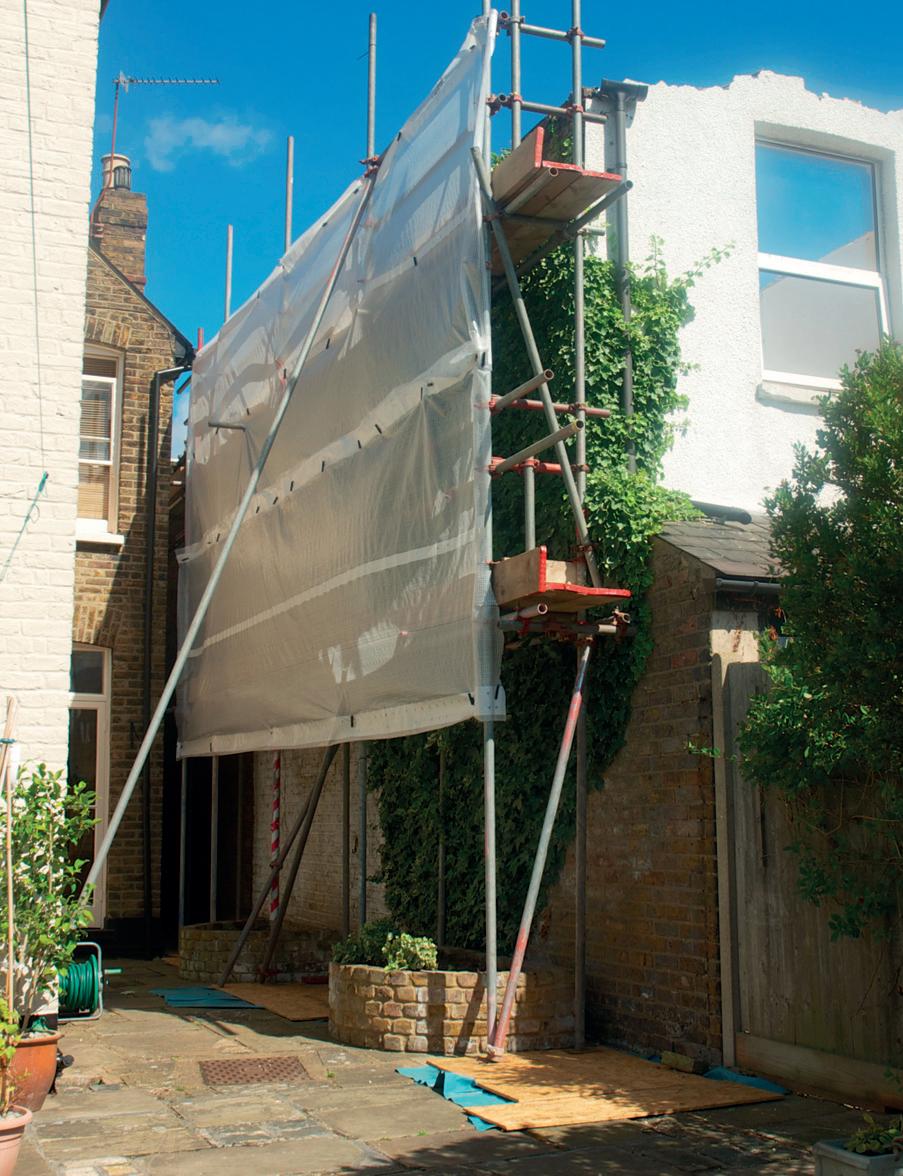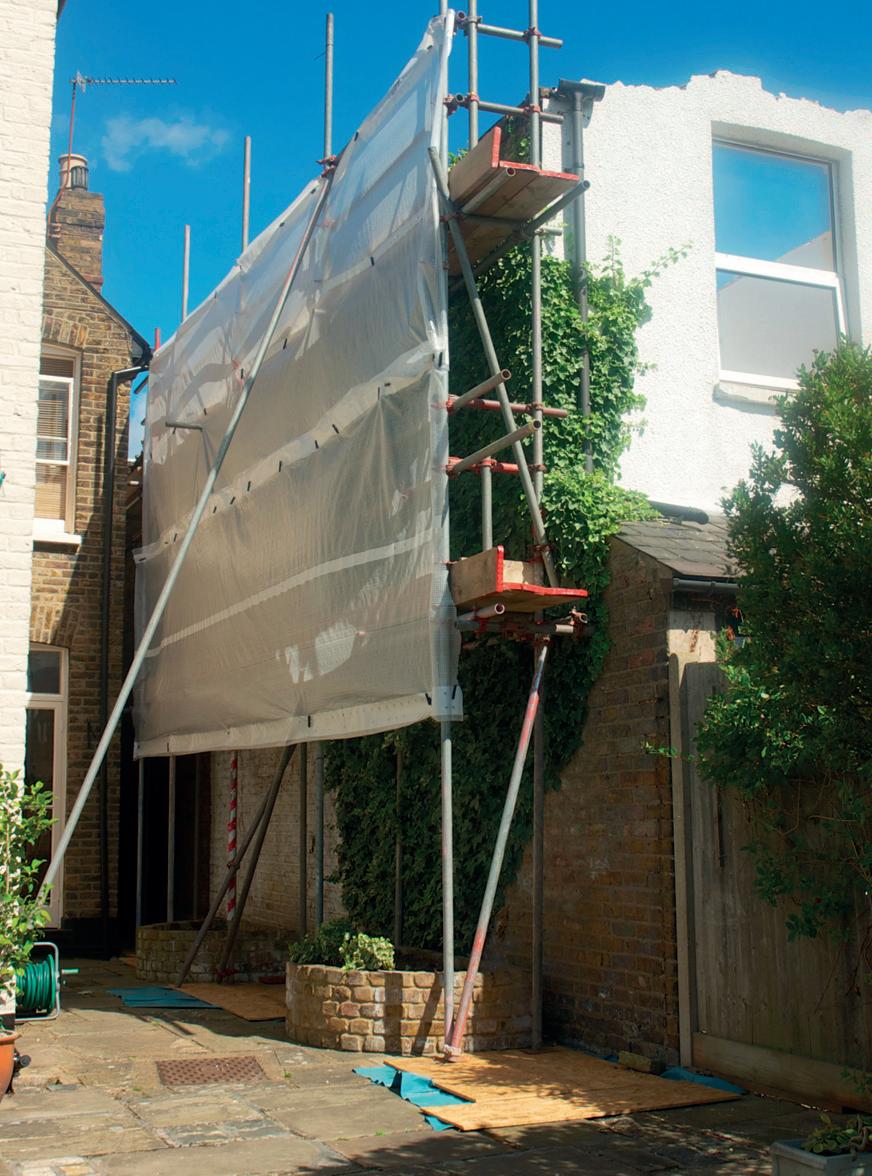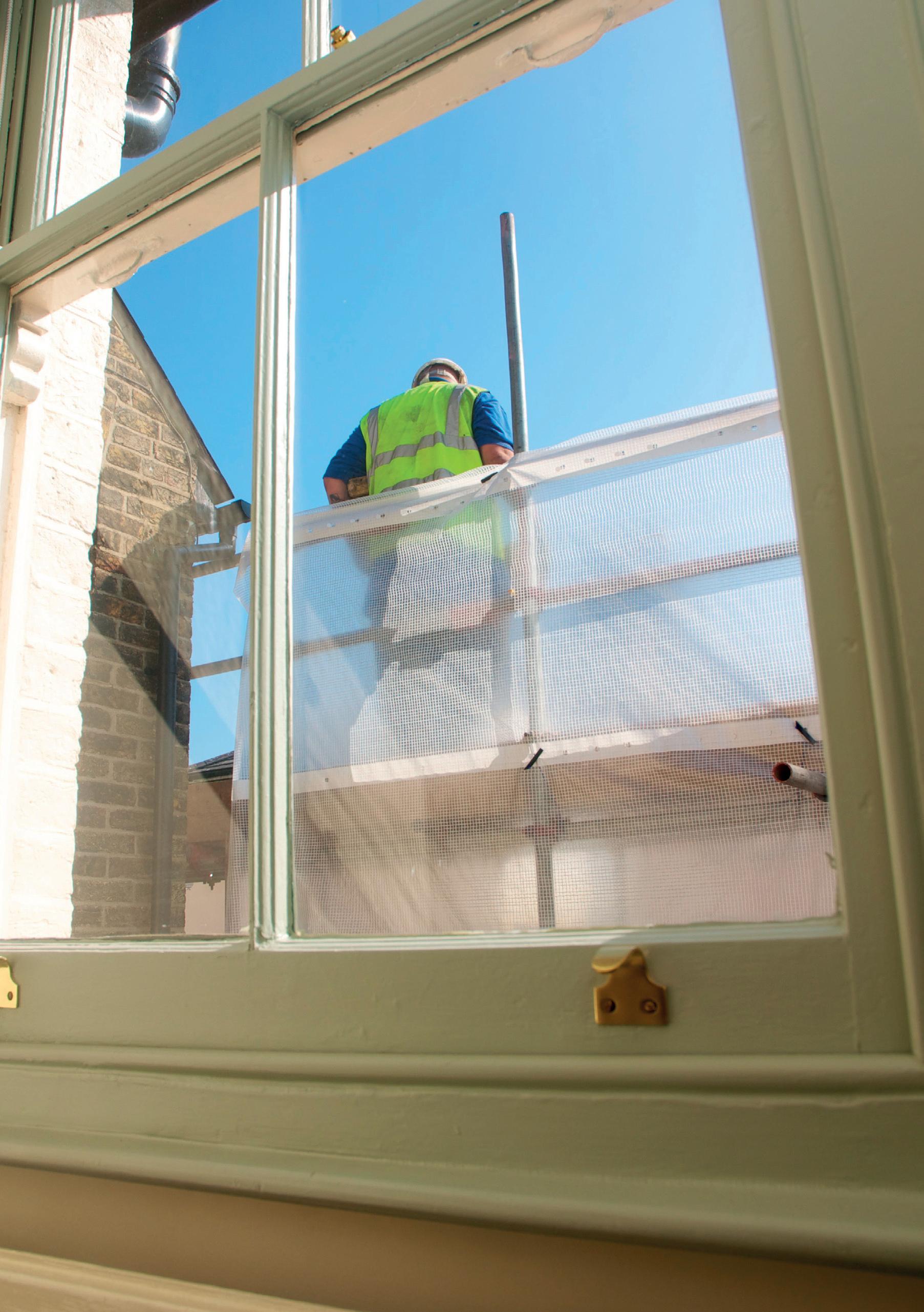
7 minute read
The great divide
As a specialism, party wall surveying is disconnected from planning approvals, building control, valuations or other forms of surveying work. But in this separate eco-system, governed by the Party Wall Act 1996, qualifi ed professionals upholding high ethical standards can fi nd themselves working alongside peers who take advantage of its insularity to relax standards. Fees oft en outstrip those in surveying’s mainstream, creating a strong profi t incentive, but the Act’s lack of defi nition of what constitutes a surveyor allows the unqualifi ed and uninsured to practise. At times, the outcomes from poor practice can be fi nancially disastrous for clients, and have been the basis of serious reputational damage for the wider industry. For David Taylor PPCABE FCABE, a Chartered Architectural Technologist and Chartered Building Engineer at David Taylor Associates and past President of CABE, “the party wall fraternity is riddled with inconsistencies and unethical behaviour”.
Surveyor Oliver Wright MCABE, a member of CABE’s expert panel, who runs London-based Wright Surveying, says the sector has become increasingly like the “Wild West” and that unethical practice has been an “industry-wide problem for as long as I can remember”. So how did the well-intentioned act open the door for bad practice?
Intention and reality
The Party Wall Act 1996, originally steered through Parliament by CABE’s current patron, Lord Lytt on, is agreed to be a useful piece of legislation: it protects the rights of both building owners and adjoining neighbours when a construction project is planned. The parties can appoint separate surveyors, who must agree a party wall “award”, a document detailing the condition of the adjoining property and designed to minimise any detriment to it as a result of the works. The Act includes a system of statutory notices that must be served within specifi c timescales and provides a mechanism for appointing a third surveyor to arbitrate if the fi rst two do not agree.
However, by failing to set minimum professional qualifi cations or standards, the Act has lowered entry barriers to the point where someone with no background in construction can call themselves a Party Wall Surveyor and practise alongside chartered CABE or RICS members.
As Wright explains: “The general point of the Act is to allow people to do building work close to neighbouring buildings, while keeping claims out of the courts. To do this, the dispute resolution mechanism is put into private hands; however, that’s a problem if the people handling the disputes aren’t the right people.”
“[The Act] fails to determine minimum standards and competence, so it opens the door to unethical and unqualifi ed individuals,” adds Taylor. “There are also professional surveyors out there who fail to follow their institutes’ codes of conduct,” he warns, mentioning failures to be upfront with clients about costs and fees. All surveying costs on both sides are typically borne by the building owner undertaking the works, but, as Wright explains, that tilts the playing fi eld in favour of the adjoining owner’s appointed surveyor. The need to complete the building works quickly can leave the building owner with litt le choice other than to absorb costs. “The building owner is in a precarious situation; unscrupulous surveyors know they have the whip hand,” he says, reporting that fees in London can reach £200 or even £400 an hour compared with £100 or £120 for other high-level surveying work. In addition, the Act stipulates that an adjoining owner’s surveyor cannot be removed until the works are complete, even if the appointing client realises they are performing poorly or suspects that they are motivated by self-interest. “Once you’re in, you’re in, and able to rack up extensive fees – fees can easily top £10,000 for a simple domestic loft conversion if the costs are not properly managed.” These matt ers can be made worse because a Party Wall Award (including the fees charged for its execution or amendment) cannot be challenged in any court, putt ing party wall surveyors in a position of almost unique advantage.
It is entirely possible to carry out party wall functions in accordance with the Act in a way that is both ethical and professional, so why are there cases where this doesn’t happen?
Has party wall surveying been lost to unethical practice, with litt le distinction between qualifi ed and unqualifi ed professionals?
Checks and balances
Part of the problem appears to be that the Act’s 21 clauses are not supported by guidance spelling out best practice, and there is no legislative mechanism to sanction surveyors who fall short of professional standards. While the Act implies that surveyors are part of a recognised professional body whose disciplinary procedures apply, that leaves anyone outside a professional body wholly unregulated.
“If you’re a member of a professional body, the threat of expulsion or disciplinary action is a good way of keeping people in check. But if you are not a member of a professional body, you have nothing to fear except litigation,” says Wright.
CABE members are expected to maintain the professional standards set out in its Code of Conduct, which includes demonstrating openness, honesty, integrity, fairness and impartiality, as


increasingly out of date. As Taylor says: “The Act needs upgrading, in the same way as Planning and Building Regulations are updated and reviewed.” However, the lack of an industry-wide coalition calling for reform makes it unlikely that reviewing the Party Wall Act will become a parliamentary and civil service priority. An option proposed by Taylor, which won member support during his presidency, is for professional bodies such as CABE to take a rigorous, unilateral approach to regulating members carrying out party wall work; perhaps by creating a new sub-division, or awarding a new professionally qualifi ed designation. “There needs to be tighter regulation and qualifi cations for those practising in the party wall world; we need a professionally recognised qualifi cation in the fi eld of party wall surveying,” Taylor says. It would certainly provide a recognisable standard for homeowners to look for when appointing a party wall surveyor. Wright agrees, “I don’t “There needs to be tighter regulation and qualifi cations for think there’s much that CABE can realistically do to address the inherent industry-wide those practising in the party wall problems; however, we can certainly educate our own world; we need a professionally recognised qualifi cation” membership and make it clear we expect the highest professional standards from our members [with a document] that spells out exactly what practices are and well as treating people with decency and aft er the project is completed, Wright are not acceptable.” respect; the RICS too has its own code and points out that building owners are more Such a document, he believes, should disciplinary procedures. In circumstances likely to offl oad any frustrations via “a redline the practice of sending out lett ers where professionals have such extensive fi ve-minute rant on the phone” rather to adjoining owners identifi ed via planning authority and power vested in them, the than by pursuing and evidencing a formal applications. “The sending of unsolicited requirement to behave in a professional complaint. These built-in barriers to lett ers is unforgivable and shouldn’t be manner is just as important as complying making a complaint mean “there is litt le allowed,” he says. “Ambulance-chasing with the lett er of the Act itself. evidence of a rising tide”. lett ers cause deliberate alarm and panic,
However, in party wall surveying, even intended to scare people into agreeing the disciplinary powers of professional Updating the Act an appointment. This is quite obviously bodies can be constrained by the Overall, the Act has remained unaltered unethical practice, which we should legislation: any complaint raised while since 1996, apart from an update that allows all condemn.” the works are ongoing can be stayed if Awards to be served electronically. As the Perhaps talking honestly about it in the subject of the complaint argues that territory around it fi lls with competent professional forums is a way to build they are carrying out a statutory role person schemes for Building Regulations, momentum for change. It is clear that with which the complaint process would or by registers of approved consultants reform is needed, so why shouldn’t it interfere. With complaints only possible in various fi elds, the Act begins to look begin here?










